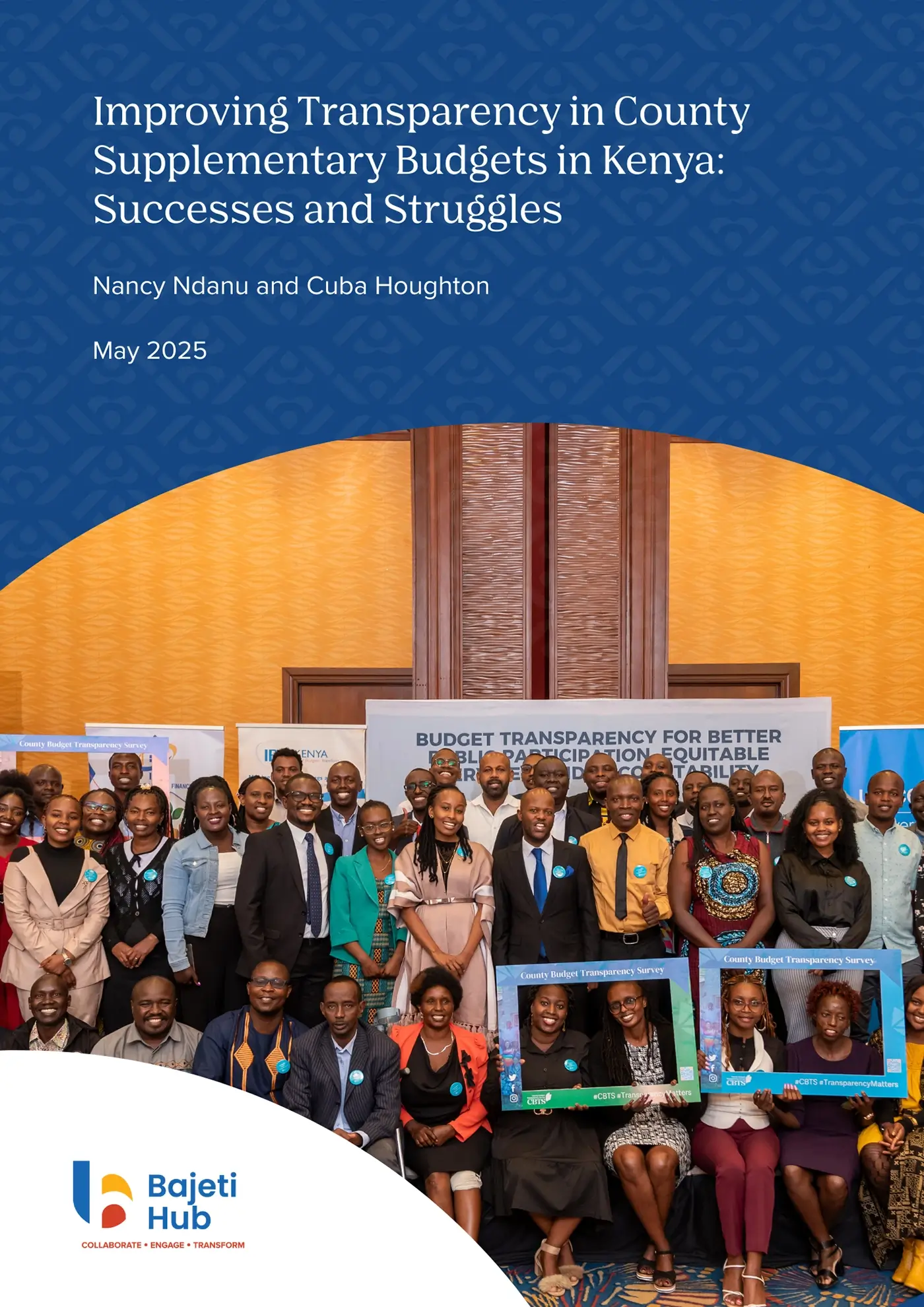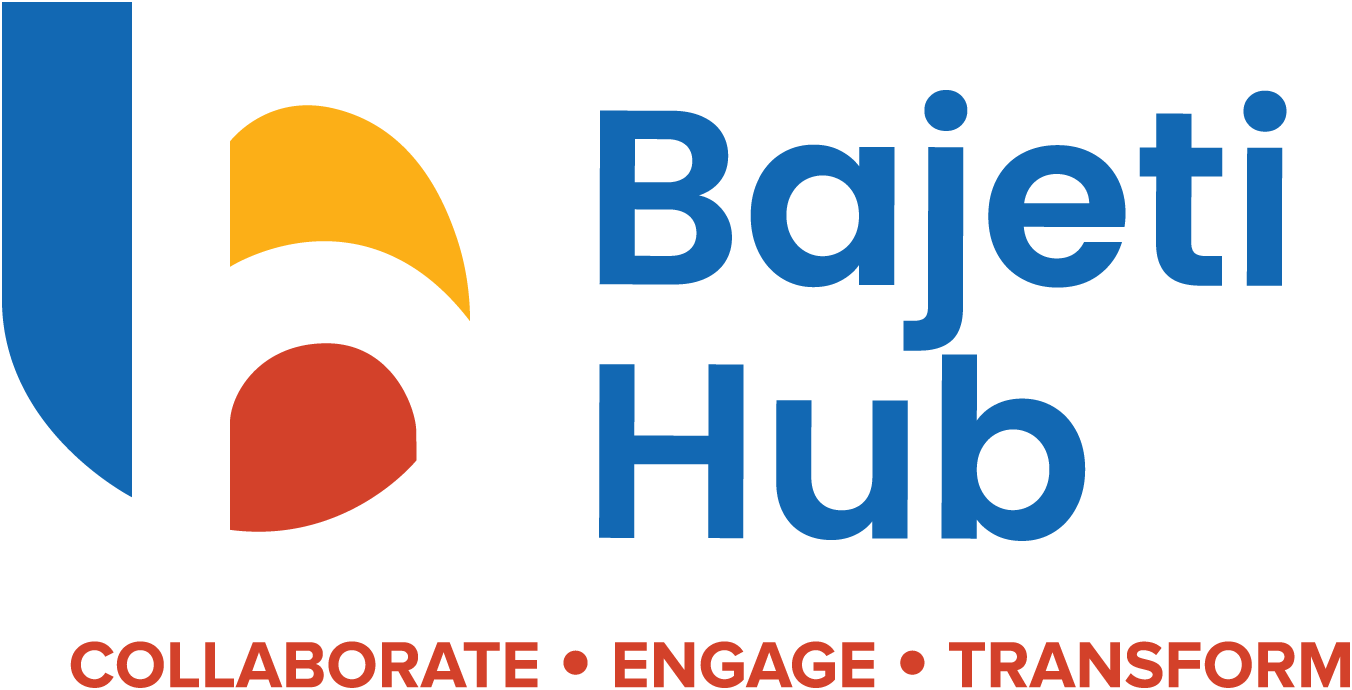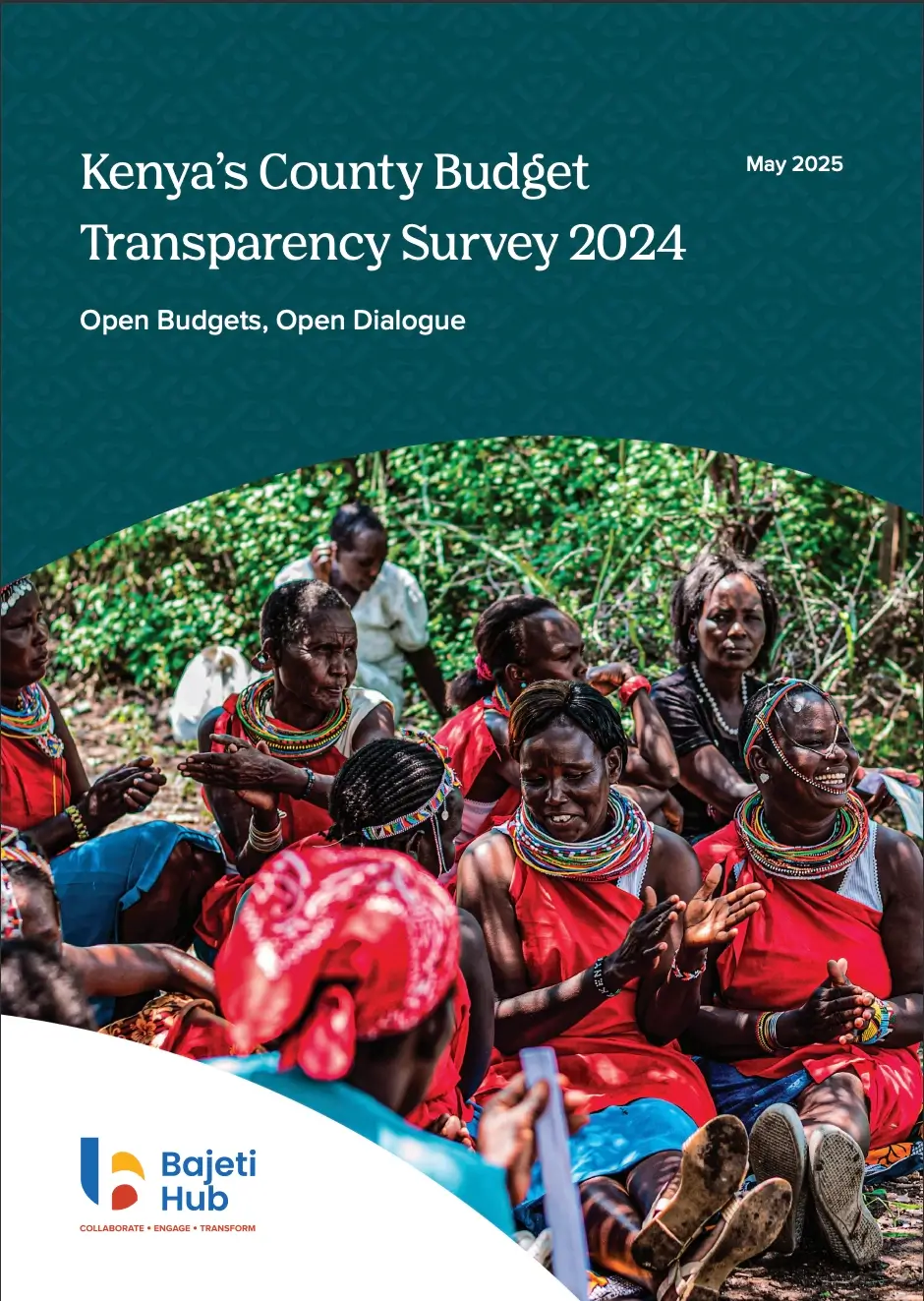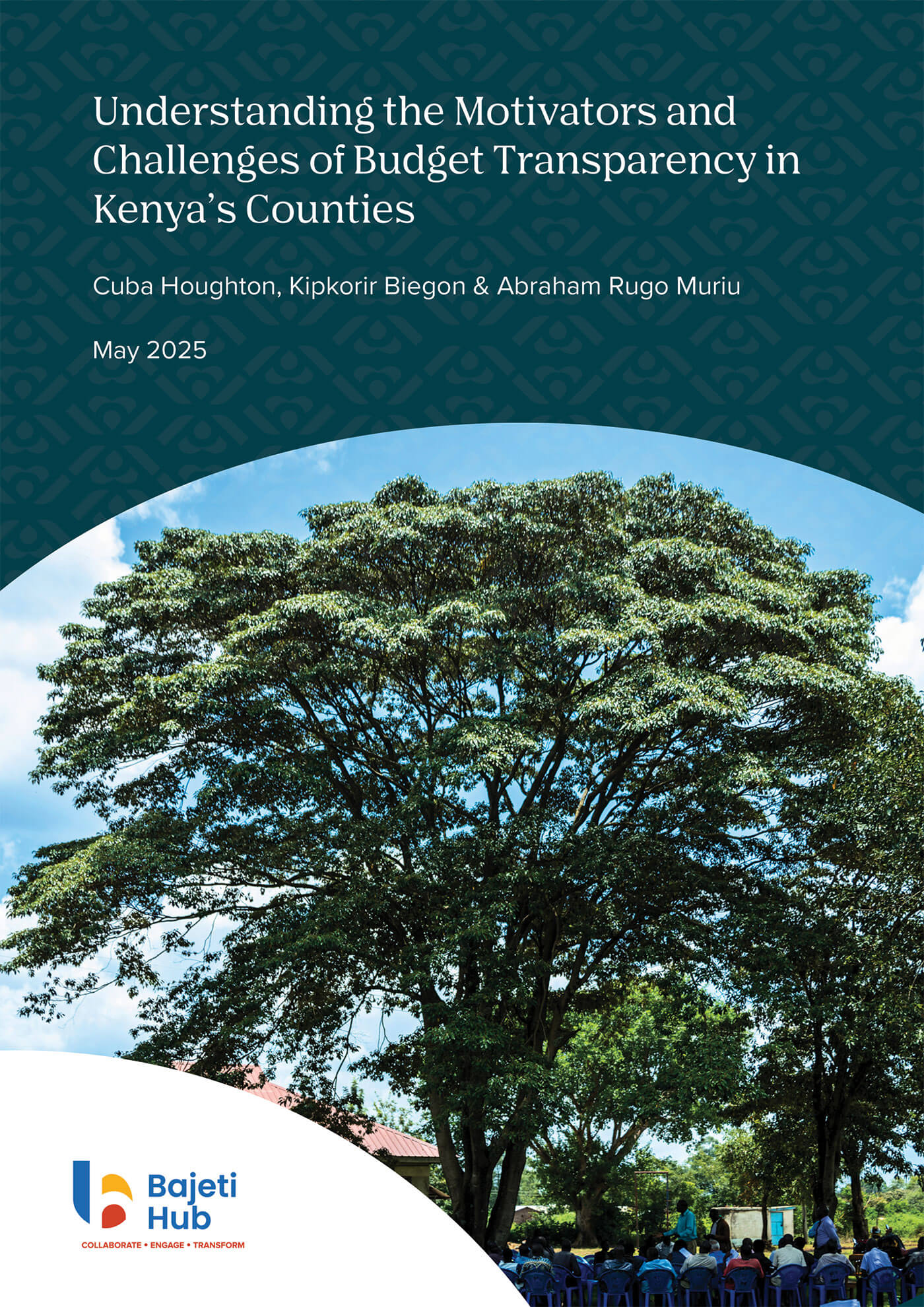Flagship Research
County Budget Transparency Survey 2024
Open Budgets, Open Dialogue
Published: May 2025
Now, in its fifth year in the current form, the CBTS shows significant gains in sub-national budget transparency over time. Counties continue to improve the number and quality of budget documents that they publish across financial years, creating opportunities for more meaningful and effective public deliberation on budgets. However, the progress in budget transparency has not been ubiquitous, with some counties stagnating or declining across surveys, indicating the potential for further improvement across the country.
This report documents the trends in budget transparency in FY 2023/2024 in detail, in comparison to the last five years, providing specific examples of good practices that all counties can emulate in coming financial years to improve the presentation of budget information.
- The CBTS 2024 score is 64 out of 100 points, an 8-point increase from CBTS 2023.
- Three counties landed in the A category, recording an index score of more than 81 out of 100, the most in CBTS history.
- Counties published significantly more budget documents, by making publicly available 84 percent of those required in CBTS 2024.
- Despite greater availability of budget documents, counties still do not provide 39 percent of the information that is required by law.
- Counties continue to struggle to provide feedback on public participation.
Downloads:
Full Report (PDF, 1,5 MB)
Summary Report (PDF, 7,6 MB)
County Summaries
Baringo
Bomet
Bungoma
Busia
Elgeyo Marakwet
Embu
Garissa
Homa Bay
Isiolo
Kajiado
Kakamega
Kericho
Kiambu
Kilifi
Kirinyaga
Kisii
Kisumu
Kitui
Kwale
Laikipia
Lamu
Machakos
Makueni
Mandera
Marsabit
Meru
Migori
Mombasa
Muranga
Nairobi
Nakuru
Nandi
Narok
Nyamira
Nyandarua
Nyeri
Samburu
Siaya
Taita Taveta
Tana River
Tharaka Nithi
Trans Nzoia
Turkana
Uasin Gishu
Vihiga
Wajir
West Pokot
Modular Research
Motivations for Budget Transparency in Kenya’s Counties
May 2025
While increased budget transparency offers benefits such as enhanced oversight and legitimacy from citizens, studies show that in spite of progress, Kenya’s counties continue to struggle to avail budget information to the public. The findings of this survey show that counties have improved in the level of information disclosed to the public since 2020. However, this progress is often neither uniform nor consistent, as some counties stagnate or regress in the number and quality of budget documents they make available online.
Globally, hardly any attempts have been made to explore what factors motivate or demotivate sub-national units of government to be fiscally transparent. Against this backdrop, Bajeti Hub conducted an in-depth study to investigate the behavioural phenomena surrounding how sub-national units in Kenya make budget information available to the public. The qualitative study documents the norms, experiences and practices that shape sub-national fiscal transparency in Kenya and presents evidence to guide fiscal reform at the sub-national level and inform advocacy efforts by local civic actors and the public. Beyond Kenya, it provides key policy insight for countries with a similar decentralized public financial management system.
Read the full report now:
Authors:
Cuba Houghton, KipKorir Biegon, Dr. Abraham Rugo
While increased budget transparency offers benefits such as enhanced oversight and legitimacy from citizens, studies show that in spite of progress, Kenya’s counties continue to struggle to avail budget information to the public. The findings of this survey show that counties have improved in the level of information disclosed to the public since 2020. However, this progress is often neither uniform nor consistent, as some counties stagnate or regress in the number and quality of budget documents they make available online.
Globally, hardly any attempts have been made to explore what factors motivate or demotivate sub-national units of government to be fiscally transparent. Against this backdrop, Bajeti Hub conducted an in-depth study to investigate the behavioural phenomena surrounding how sub-national units in Kenya make budget information available to the public. The qualitative study documents the norms, experiences and practices that shape sub-national fiscal transparency in Kenya and presents evidence to guide fiscal reform at the sub-national level and inform advocacy efforts by local civic actors and the public. Beyond Kenya, it provides key policy insight for countries with a similar decentralized public financial management system.
Read the full report now:
Authors:
Cuba Houghton, KipKorir Biegon, Dr. Abraham Rugo
Modular Research
Improving Transparency in County Supplementary Budgets in Kenya: Successes and Struggles
TBA
Coming Soon!

Get in Touch with Bajeti Hub
Sign up here to join our mailing list for updates on our work, newsletters, new research and much more!




